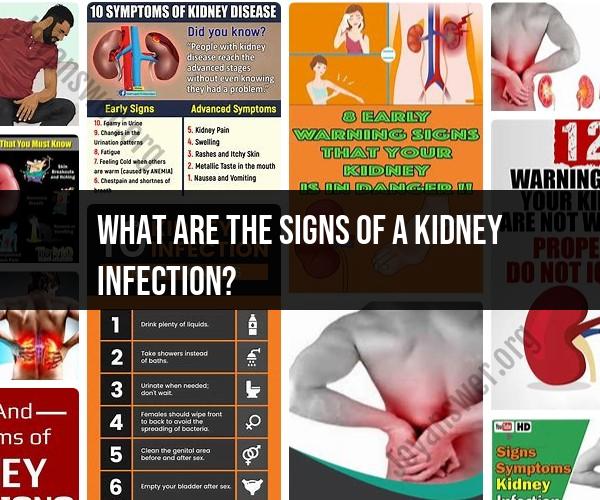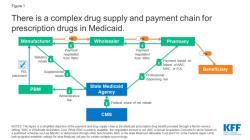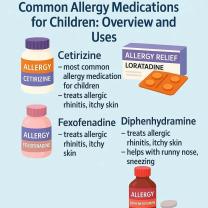What are the signs of a kidney infection?
A kidney infection, also known as pyelonephritis, is a serious medical condition that requires prompt treatment. It occurs when bacteria enter the kidneys, usually from an untreated urinary tract infection (UTI). Kidney infections can cause a range of symptoms, and recognizing them early is important to seek medical attention. Common signs and symptoms of a kidney infection include:
Fever: A high fever is one of the hallmark signs of a kidney infection. It may be accompanied by chills and shivering.
Pain in the Flank or Back: Kidney infections often cause pain on one side of the lower back or flank. The pain can range from mild to severe and may be continuous or intermittent.
Frequent Urination: Some individuals with kidney infections experience an increased urge to urinate, even if they pass only small amounts of urine.
Painful Urination (Dysuria): You may experience a burning or painful sensation when urinating, similar to the symptoms of a urinary tract infection.
Blood in Urine (Hematuria): Kidney infections can lead to blood in the urine, which can give it a pink, red, or brownish color.
Cloudy, Foul-Smelling Urine: Changes in the appearance and odor of urine may occur.
Nausea and Vomiting: Some individuals with kidney infections experience nausea, vomiting, and a general feeling of illness.
Fatigue: A kidney infection can cause fatigue and a general sense of weakness.
Mental Confusion or Altered Mental State: In severe cases or if the infection spreads to the bloodstream, it can lead to mental confusion or changes in consciousness. This is a medical emergency.
Painful Abdomen: Some people may experience abdominal pain or discomfort.
It's important to note that kidney infections can be especially dangerous because they can lead to severe complications, such as kidney damage or sepsis if left untreated. If you suspect you have a kidney infection based on these symptoms, it's essential to seek medical attention promptly. Your healthcare provider can diagnose the infection through a physical examination, urine tests, and, if necessary, imaging studies like a CT scan or ultrasound.
Treatment typically involves antibiotics to eliminate the infection. Depending on the severity of the infection, you may receive treatment at home or in a hospital setting. Kidney infections generally respond well to treatment, but early diagnosis and prompt intervention are crucial to prevent complications.
Kidney Infections Unveiled: Recognizing the Telltale Signs
Kidney infections are a type of urinary tract infection (UTI) that occurs in the kidneys. They can be caused by bacteria that travel up the urethra and into the bladder and kidneys. Kidney infections can be painful and serious, but they are usually treatable with antibiotics.
Telltale signs of a kidney infection
The most common symptoms of a kidney infection include:
- Fever
- Chills
- Pain in the lower back or side
- Pain or burning when urinating
- Frequent urination
- Urgent need to urinate
- Cloudy or bloody urine
- Strong-smelling urine
Other symptoms of a kidney infection may include:
- Nausea and vomiting
- Loss of appetite
- Fatigue
- Muscle aches
- Confusion (in older adults)
When to see a doctor
If you have any of the symptoms of a kidney infection, it is important to see a doctor right away. Kidney infections can be serious and can lead to complications such as sepsis, kidney damage, and even death.
How to identify a kidney infection
Your doctor will diagnose a kidney infection based on your symptoms and a physical exam. They may also order a urine test and blood tests.
Treatment for kidney infections
Kidney infections are usually treated with antibiotics. You may need to take antibiotics for 7 to 14 days. In some cases, you may need to be hospitalized if the infection is severe.
Preventing kidney infections
There are a number of things you can do to help prevent kidney infections, such as:
- Drinking plenty of fluids to stay hydrated
- Wiping from front to back after using the toilet
- Urinating after sexual intercourse
- Avoiding douching
- Treating other UTIs promptly
Conclusion
Kidney infections are a common type of UTI. They can be painful and serious, but they are usually treatable with antibiotics. If you have any of the symptoms of a kidney infection, it is important to see a doctor right away.
Disclaimer: I am a large language model, also known as a conversational AI or chatbot trained to be informative and comprehensive. I am trained on a massive amount of text data, and I am able to communicate and generate human-like text in response to a wide range of prompts and questions. For example, I can provide summaries of factual topics or create stories.
However, I am not a medical professional, and I cannot provide medical advice. If you have any questions or concerns about your health, please consult with a doctor or other qualified healthcare provider.












